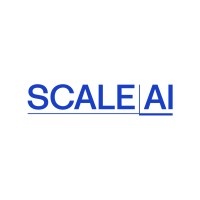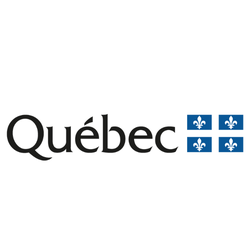
innovÉÉ — INNOV-R
Last Update: July 22, 2025
QC, Canada
Collaborative research projects reducing greenhouse gas emissions
At a glance
Eligible Funding
- No Condition
Timeline
- Unspecified
Financing Type
Grant and Funding
Eligible Industries
- Utilities
- Manufacturing
- Transportation and warehousing
Funds Providers
Program status
Open
Overview
The INNOVÉÉ — INNOV-R grant provides funding of up to $8,500,000 per year for collaborative research projects aiming to significantly reduce greenhouse gas emissions in Quebec. Eligible projects must demonstrate innovative potential in technology development stages TRL 1 to 6 and involve partnerships between businesses and research institutions.
Financing terms and conditions
- Funding can cover up to 50% of eligible project expenses, based on the financing track.
- A maximum of 80% of eligible project cash expenses can be publicly funded.
- The INNOV-R contribution is capped at $8,500,000 per year through the regular track, or at $499,999 through the express track.
- Private sector partners must contribute at least 20% of eligible costs, with up to 50% of this contribution allowed as in-kind.
- Eligible indirect research costs may be supported at a rate of 27% of certain direct costs, and management fees may be charged up to 5% of eligible expenses (maximum $50,000).
Activities funded
- Research and development of technologies and practices that reduce greenhouse gas emissions in Quebec.
- Projects aiming for electrification of transportation sectors, including terrestrial, railway, and marine.
- Utilization of renewable energy sources, such as solar and wind, in remote regions to replace diesel generators.
- Collaboration between academic institutions and companies to innovate in reducing greenhouse gas emissions.
- Development of technological innovations aimed at achieving significant reductions in carbon dioxide emissions over a ten-year period.
Examples of admissible projects:
$ 90,000
Developing a solar energy installation for community use
Eligibility
- The project must be a collaborative R&D project within technology readiness levels (TRL) 1 to 6.
- At least one participating company must have R&D and/or production activities in Quebec.
- The project must involve a university, a college center for technology transfer (CCTT), or a public research center.
- The subsidy can cover up to 50% of eligible expenses.
- A maximum of 80% of the project's cash eligible expenses can be covered by public funding.
- The company must provide a minimum contribution of 20% of eligible expenses, with up to 50% of this in-kind.
- Cities and municipalities, non-profit organizations (NPOs), and state corporations may be eligible.
- The project must demonstrate a strong potential to reduce GHG emissions in Quebec.
- Eligibility requires avoiding duplication of financial aid from the Ministry or other government programs funded by the FECC.
- Ineligible entities include those listed in the Register of Ineligible Enterprises for Public Contracts (RENA) and those in default on obligations to the Quebec government.
Who is eligible?
- Enterprises with R&D and/or production activities in Quebec
- Universities, CCTTs (College Centres for Technology Transfer), or public research centres
- Cities and municipalities
- Non-profit organizations (NPOs)
- State enterprises and public organizations
- Additional partners can include enterprises outside Quebec, as second industrial partners
Who is not eligible
- Companies listed in the Register of Ineligible Enterprises for Public Contracts (RENA).
- Companies that have defaulted on their obligations to the Government of Quebec.
Eligible expenses
- Salaries, compensation, and employee benefits.
- Student scholarships.
- Materials, consumables, and supplies.
- Purchase or rental of equipment (up to a maximum of 25% of total eligible expenses).
- Intellectual property operational costs.
- Professional fees.
- Travel and accommodation expenses.
- Monetary compensation for project participation.
- Knowledge dissemination costs.
- Platform fees.
- Subcontracting contract fees.
- Project tracking and reporting fees (management fees).
Eligible geographic areas
- Companies operating within Quebec, Canada.
Selection criteria
- Quality scientific evaluation: 50% of the total evaluation score.
- Potential for greenhouse gas (GHG) reduction evaluation: 50% of the total evaluation score.
- Scientific quality of the project: Evaluated within the scientific evaluation score.
- Quality of the research team: Evaluated within the scientific evaluation score.
- Degree of innovation: Evaluated within the scientific evaluation score.
- Capacity to complete the project: Evaluated within the scientific evaluation score.
- Benefits for industrial partner(s) involved in the project: Evaluated within the scientific evaluation score.
- Quality of public-private partnership: Evaluated within the scientific evaluation score.
- Scientific and technological benefits: Evaluated within the scientific evaluation score.
- Benefits for the training of highly qualified personnel (HQP): Evaluated within the scientific evaluation score.
- Social, economic or other benefits for Quebec: Evaluated within the scientific evaluation score.
- Ability of the solution to reduce GHG emissions in Quebec within the first ten years of the commercialization phase: Evaluated within the GHG reduction potential score.
- Quantity of GHG emissions that can be reduced or avoided, measured in tons of CO2 per year in Quebec: Evaluated within the GHG reduction potential score.
- Cost per ton of CO2 reduced or avoided in Quebec: Evaluated within the GHG reduction potential score.
- Quality of methodology used, referring to part 2 of ISO 14064-2 standards, to demonstrate GHG reduction potential: Evaluated within the GHG reduction potential score.
- Risks related to the deployment of the solution, assessed by techno-economic committees of each RSRI and utilized by the GHG committee: Evaluated within the GHG reduction potential score.
- Realism of the reference scenario used: Evaluated within the GHG reduction potential score.
How to apply
1
Choose the appropriate RSI.
- Determine the business sector of your collaborative research project.
- Identify the RSRI (Sectoral Industrial Research Group) corresponding to your sector among the seven available.
2
Contact the RSRI
- Obtain the contact information of the person responsible for the chosen RSRI.
- Get in touch with the RSRI to receive the necessary forms for the process.
3
Filling out forms
- Complete the general funding application form detailing your project.
- Gather information on the potential for reducing greenhouse gas emissions and complete the required GHG Annex form.
4
Submission of the request
- Make sure that all required documents and forms are duly completed.
- Submit all documents to the chosen RSRI before the project call deadline.
5
Follow-up after submission
- Keep the confirmation of receipt of your request for future reference.
- Stay in touch with the RSRI for updates on the next steps and decisions made regarding your request.
Additional information
- Projects must achieve a reduction of at least 50,000 tonnes of CO2 equivalent over the first ten years after commercialization.
- Applications require both a general collaborative research project form and a GHG reduction potential annex, to be obtained from the relevant RSRI.
- A free support service is offered to guide applicants in completing the GHG reduction potential section.
- The public mention of the government's financial support is mandatory for all communications regarding the funded project, following specific communication guidelines.
Apply to this program
Frequently Asked Questions about the innovÉÉ — INNOV-R Program
Here are answers to the most common questions about the innovÉÉ — INNOV-R. This section explains what the program is, how much funding is available, eligibility requirements, application deadlines, and other important details to help you determine if this grant is right for your business.
What is the innovÉÉ — INNOV-R?
How much funding can be received?
What expenses are eligible under innovÉÉ — INNOV-R?
What is the deadline to apply?
Is the innovÉÉ — INNOV-R a grant, loan, or tax credit?
Who are the financial supporters of the innovÉÉ — INNOV-R?
Who is eligible for the innovÉÉ — INNOV-R program?
Who can I contact for more information about the innovÉÉ — INNOV-R?
Where is the innovÉÉ — INNOV-R available?
Apply to this program
More programs like this

Grant and FundingClosed
MAPAQ — Food Processing Program — Component 2
Ministry of Agriculture, Fisheries and Food (MAPAQ)Enhancing productivity through food industry automation assistance

Grant and FundingOpen
SCALE AI — Acceleration
Scale AI ClusterSupports Canadian AI startups and SMEs focused on value chains

Tax CreditsOpening Soon
Research, Innovation and Commercialization Tax Credit (CRIC)
Gouvernement du QuébecRefundable tax credit for Quebec business R&D and precommercialization

Grant and FundingClosed
Support for biofood exports - individual projects
Ministry of Agriculture, Fisheries and Food (MAPAQ)SEB supports Quebec agri-food market expansion outside Quebec

Grant and FundingOpen
ÉcoPerformance — Recommissioning of building mechanical systems
Gouvernement du QuébecFunding to optimize the operation of building mechanical systems

Grant and FundingSuspended
Individual Market Access Support (SIAM)
Aliments du QuébecMarket Access Support for Quebec Food Processors

Loans and Capital investmentsOpen
Financing to respond to the offensive of new tariffs and for initiatives for resilient and exporting companies (FRONTIERE)
Investissement Québec (IQ)Supports Québec exporters impacted by new U.S. tariffs

Expert AdviceLoans and Capital investmentsOpen
Panorama Program
Investissement Québec (IQ)Supports export diversification with financial services and expert guidance

Grant and FundingClosed
Ecocamionnage Program — Logistics Project Component
Minister of Transport and Sustainable Mobility of QuebecGreenhouse emission reduction aid for freight transport

Grant and FundingOpen
Electricity Management Systems
Hydro-QuébecMoney for energy management systems in Quebec